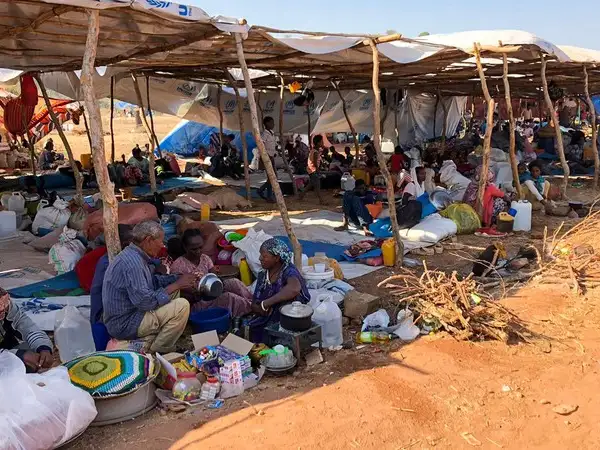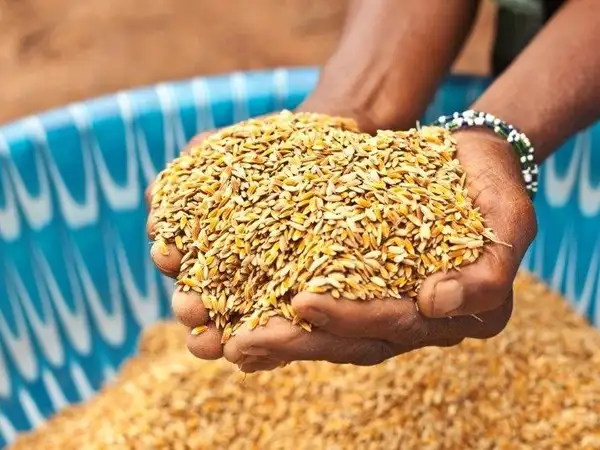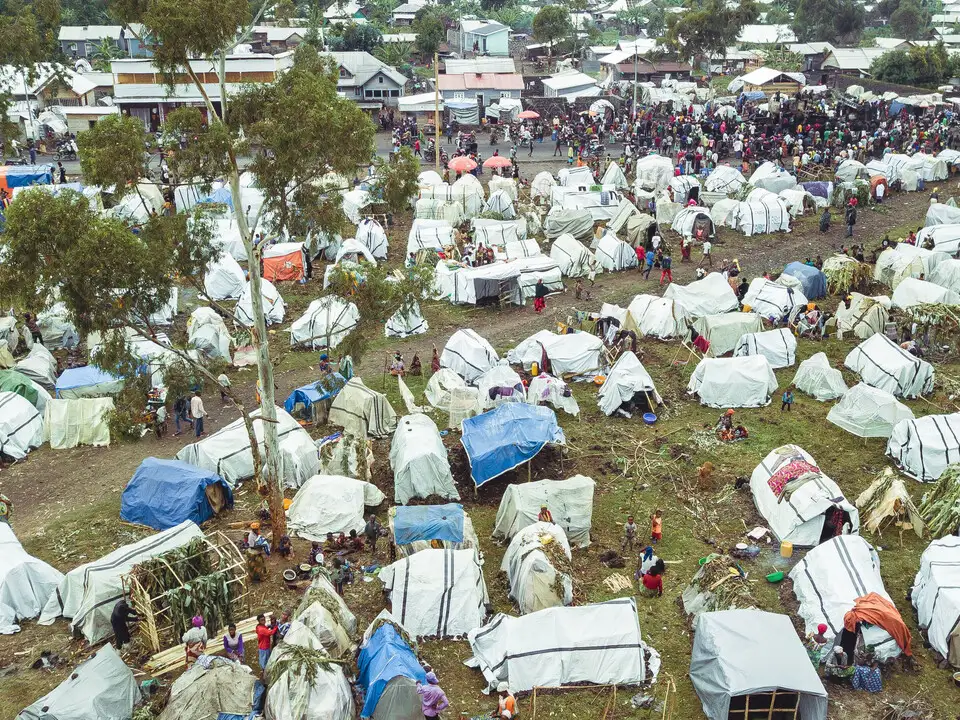Together, we can reach out with love to help our sisters and brothers around the world who are facing extreme hunger through no fault of their own.


Thousands of Ethiopians have now arrived in eastern Sudan. Credit: Norwegian Church Aid / Kristin Berg
On 4 November 2020, armed conflict broke out between the regional government and the federal government in northern Ethiopia in the country’s Tigray region. The conflict has since spilled over into the neighbouring Amhara and Afar regions.
Reports indicate that clashes continue in Northern Ethiopia involving Ethiopian, Amhara and Tigrayan forces. Hundreds of thousands of people are displaced in Afar and Amhara and over 2 million people are now thought to be displaced in Tigray. Now, it is estimated that over 6 million people across the areas are in need.
Hunger is a major issue, with harvests impacted in November and December, and many people are in critical food security situations.
How is CAFOD responding to the crisis?
We have a local presence in Ethiopia and are working with local church and aid agencies to respond to the crisis. We are supporting the work of the Ethiopian Catholic Church and Caritas Internationalis.
Along with our local partners, we are:
supporting health clinics and pharmacies to provide vital care and to restock medicines and supplies
working with local experts and community support networks to provide psychosocial support to people and communities affected by the conflict
supporting with the delivery of temporary shelter materials, blankets, sleeping mats, cooking items and hygiene kits for families displaced by and made homeless by the conflict.
Our partner is working to provide emergency food aid to hundreds of thousands of people in need.
Working alongside the church in Ethiopia, Caritas Internationalis plans to deliver:
water to 30,000 people
nutrition support to over 50,000 children under 5
practical support like trauma and emergency kits along with hygiene facilities to help stop the spread of Covid-19.
This will be alongside longer-term support, which will include the provision of seeds, cash transfers and education materials.
The heat can be unbearable
How did the conflict begin?
Accusing the leadership of the Tigray region of attacking a military base, the Ethiopian government began military operations in the region.
The eruption of violence came after roughly two years of growing tensions between the government and the country’s former ruling party, the Tigray People’s Liberation Front, who ran Ethiopia for almost three decades.
What wider impact will the Tigray conflict have?
This conflict will have repercussions across the Horn of Africa. The UN chief Antonio Guterres has warned that "the stability of Ethiopia is important for the entire Horn of Africa region."
The UN estimates that 600,000 people in Tigray rely on food aid and across the country around 7 million people face food shortages.
There are growing health concerns for the spread of the coronavirus as people end up in large makeshift camps, without the basics - like clean water, and health care facilities - to protect themselves against the virus.
Are CAFOD's local partners safe?
Our partners are safe and are trying to respond to the humanitarian crisis as best they can.
What is the Ethiopian Church and Pope Francis saying about the conflict?
On Sunday 13 June 2021, Pope Francis called for urgent aid to be sent to people in need in Ethiopia who have been “struck by a grave humanitarian crisis".
He called for an urgent return of social harmony and for “all food aid and health care assistance to be guaranteed.”
The Catholic Bishops of Ethiopia have appealed for peaceful dialogue. In a letter they said, "We urge parties to resolve their differences amicably, in a spirit of respect, understanding."
They hope and pray "for the people to live together in respect, concertation, and dialogue, and to work together for the prosperity of their common country".
Pope Francis has reiterated the same calls, appealing to the Ethiopian leaders to choose the path of peace, and inviting all Ethiopians “to prayer and to the fraternal respect for dialogue and the peaceful resolution of discord”.
This prayer can be adapted for any country that is experiencing conflict.



